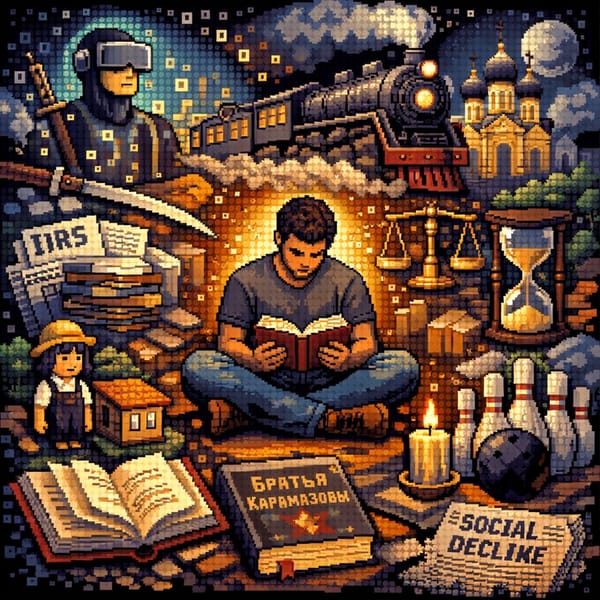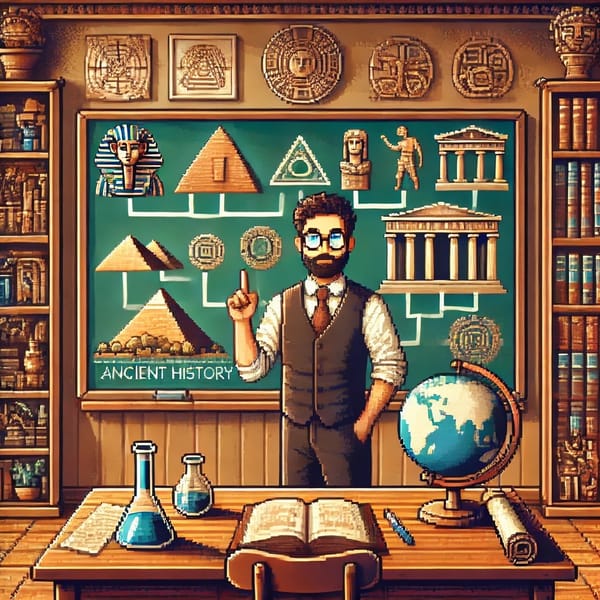Seeming Slack
I tend to try to optimize everything. I love being efficient and getting things done quickly. But while every system can be optimized quantitatively, that doesn't mean it should be. Sometimes, some form of je ne sais quoi can't be entirely captured in the numbers (or even an English word).
The original inspiration for this article came while reading Unreasonable Hospitality, the story of how Eleven Madison Park became the best restaurant in the world. One thing the author, Will Guidara[1], discussed was his approach to budgeting. He was ruthless with 95% of his budget, but because he was so strict with the 95%, he could spend the final 5% on anything he wanted. In the end, the 5% is what made the restaurant genuinely great.
In reflecting on this story, many examples began to come to mind of other times I have heard similar stories and how people try to capture the "it" factor. These things are tough to quantify but serve as a multiplier of effort. These are a few of the themes I identified in these examples.
Opening Your Aperture
When you focus on work right before you, your brain narrows in on the specific task. If you are always focused on the next incremental step, your brain never gets to relax and open up your aperture to think more broadly.
In his book, David Ogilvy recommends that if you work in an advertising agency, you should have a hobby… advertising. He lived this out and worked tirelessly but found time for a few other pursuits. He said he takes long baths, gardens, or walks in the country because while doing so, he receives a “constant stream of telegrams" from his unconscious that he can use in his advertisements. Despite his intense dedication to his work, he understood the power of his unconscious and was willing to slow down and listen.
Some ideas seem difficult to have when we are in the flow of work. Our subconscious is constantly doing work on our behalf, recognizing patterns and making novel connections; we just need to give it the space to communicate with us.
Stephen King makes a similar observation. He always imagined the perfect writing day as silence and peace in his house or retreating with other writers. Over time, he realized that disruptions, like taking a kid to soccer practice, created new connections in his mind. He says, "It is, after all, the dab of grit that seeps into an oyster's shell that makes the pearl, not pearl-making seminars with other oysters."
When we step away from the desk and open our minds, we may be surprised by what we find. Many of us may have experienced this over the holidays if we took an extended break from work. Things probably started coming to mind and clicking in new ways that we would have missed without taking the break.
Chasing Inspiration
Rabbit holes can be viewed negatively and drag on short-term productivity, but sometimes, they can be some of the most productive work you will do. Pursuing something purely of interest can help take off some of the mental guard rails you may have had otherwise.
The book Range uses Oliver Smithies, a scientist, as an example. Oliver would run what he called "Saturday experiments", where he didn't have to do everything strictly by the book or have rational scientific justifications for every action. He could pursue what he found interesting instead of the next incremental step in his funded research. During one of these Saturday experiments, he remembered how his mom stashed his dad's shirts. The starch would conge into a jelly. When working with various molecules, they kept sticking to the experiment paper, making them worthless. Smithies wondered if they could use this sort of jelly instead as the medium. This is how he discovered gel electrophoresis, which enables the separation of biological molecules such as DNA, RNA, and proteins. Without this casual discovery, we couldn't identify disease-associated genes, use DNA fingerprinting, or many other subsequent breakthroughs.
Following your intuition in these situations seems to be beneficial. You don't always know exactly what may work, but you can feel that something could be significant. Being able to remove the demands of checking every box or needing to justify the work to someone else can lead to unexpected connections and important discoveries.
Google embodies this today and is well known for its 20% projects[2]. They allow employees to spend 20% of their time on a project unrelated to their direct role[3]. In some cases, these are passion projects, but in other cases, you end up with things like AdSense and Gmail that came from these projects and became core products. At a minimum, Google is giving their team a chance to be excited about 20% of their work and pick up some new skills in a different domain, but it has a huge upside and has paid off by creating key products for their business.
Focusing on the Foundation
Supposedly, Abraham Lincoln said, "Give me six hours to chop down a tree and I will spend the first four sharpening the axe." If we are going to spend a lot of time doing something, we should make sure we are using the right tools, and they are in the right shape. There is a similar parable down this vein of a man trying to cut down a tree with a saw, and it is taking him a long time. A passerby says, "Why don't you sharpen your blade?" The man responds, "I don't have time!"
This is an easy loop to get caught in because there is certainty in doing X more work the old-fashioned way but uncertainty in learning a new method or skill[4]. Usually, the outcome isn’t as predictable as sharpening the axe and seeing an immediate impact. Still, over time, investment in sharpening the proverbial axe of things you do frequently or do for work is time well spent. Beyond the gains in productivity and insight in the medium term, you will indeed be left behind if you don’t keep up in the long term.
Richard Feynman provides another good example here. He had a superb level of natural talent but also a different "box of tools" relative to those around him. In one example, Feynman studied calculus so thoroughly that when presented with an integral that other physicists could not solve, he immediately saw the answer, differentiating under the integral. No one around him had heard of the technique before, but it immediately did the trick. He didn’t work harder to solve the problem. He just had a tool others didn’t since he studied the basics more thoroughly.
Providing time to focus on our foundation helps keep us relevant and sharp and can even give us the skills to solve problems or generate ideas that others may miss.
Conclusion
I think we can all use more slack in our schedule. Go on a walk, pursue a project just because you want to, or learn more about a topic that interests you. Be okay optimizing for longer-term feedback loops where you can't see the payoff. Instead of always focusing on the next step of incremental work, create an environment that helps generate insights and sets up long-term success. Optimizing everything for the short term is draining and produces work that is objectively less beautiful and enjoyable.
- He has recently been a consultant for The Bear, too. I highly recommend watching the show.
- I didn’t know this until researching this piece, but 3M had a precursor called the 15% rule starting in the 1950s, which is still active today. This program is where the famed Post-it Note story was born.
- Some debate whether this still happens entirely since they are such a large entity. I am not here to litigate that argument.
- I hope my doctors keep up with the latest procedures and technology to treat my ailments effectively, but they are probably too busy.



